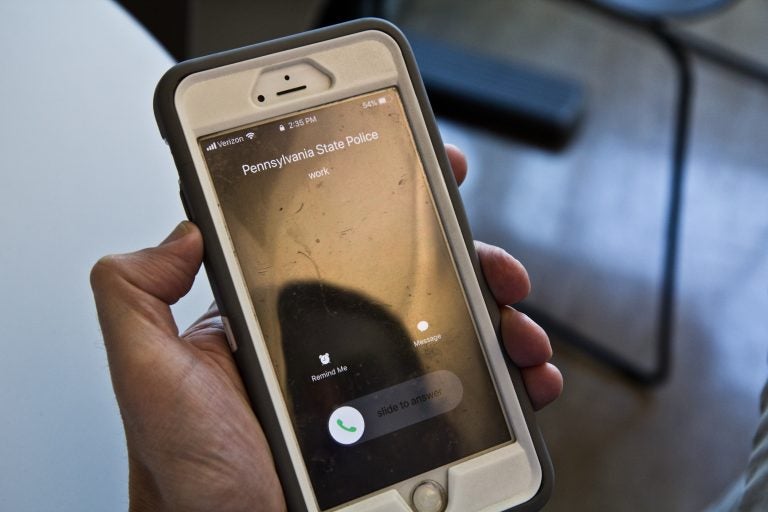Savvy scammers tap into IRS anxiety to dupe taxpayers out of millions
The IRS estimates phone scams have cost consumers more than $65 million in last five years.
Listen 3:37
The IRS warns taxpayers to watch out for scammer who claim to with the State Police. (Kimberly Paynter/WHYY)
Tax season is one of the most dreaded times of the year, and scammers take advantage of that anxiety to trick unsuspecting people into giving them money. The Internal Revenue Service estimates that more than $65 million has been lost since 2013 because of the phone tax scams most common during March and April.
I learned more about these scams firsthand when I answered my phone and heard a voice say he was calling from the Pennsylvania State Police. He rattled off information about me — my full name, my email address, where I went to college, when I graduated — and told me the IRS had a warrant out for my arrest for not paying taxes on my college scholarship.
When I sounded incredulous, he told me to look up the number that appeared on my caller ID as a kind of verification. It was, in fact, the number of the Pennsylvania State Police.
Michelle Abiltz of Barto, Pennsylvania, fell victim to a phone tax scam just like mine. She was at work when she got the call.
“It said that this was the IRS, I owed money, and if I didn’t call back this number, the local authorities would be after me,” said Albitz
The scammers forced her to stay on the phone as she pulled more than $10,000 out of her credit cards.
“Right now, if I wanted to get a loan, I can’t, because my credit right now isn’t that great,” she said, tearing up.
Albitz, 45, was one of 52 people in Pennsylvania who fell for a tax scam last year. In 2017 alone, scammers tricked more than $356,000 out of Pennsylvania residents according to the IRS.
More than $1.8 million has been lost in Pennsylvania since 2013, and the state is ranked ninth in the country in terms of dollars lost.
“A lot of people are afraid of the IRS, and so, when you hear those words when someone calls, I think it intimidates a lot of folks on the receiving end of the phone call,” said Ed Wirth, a special agent with the IRS criminal investigation division.
Phone scams can be spotted because they’re sudden, and the request will seem urgent,” he said. “Often scammers will threaten legal action, like arrest or deportation. And, in order to make the problem go away, they’ll request personal information, or money.
As technology evolves, so have tax scams. Con artists can make any number appear on your caller ID — and that’s how the caller made it look like he phoning me from the state police number. Scammers can now even make it look like they’re calling from the real IRS number.
That can make these scams convincing, but Wirth advised remembering one simple rule:
“If you have not received communication from us via the U.S. mail, we’re not going to be calling you,” he said.
He urged people to not let fear of the tax man make them the next victim of a tax scam.
WHYY is your source for fact-based, in-depth journalism and information. As a nonprofit organization, we rely on financial support from readers like you. Please give today.




